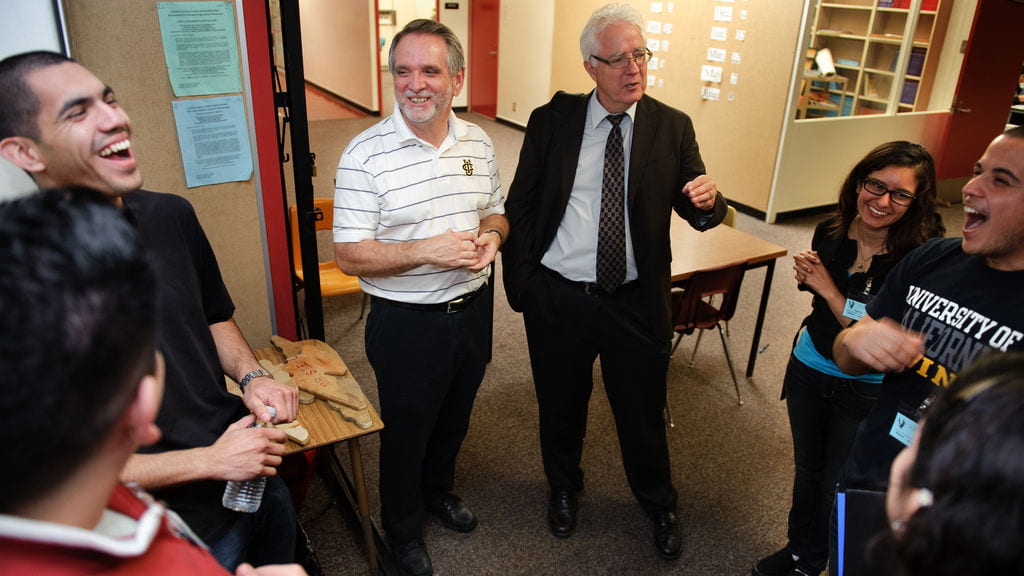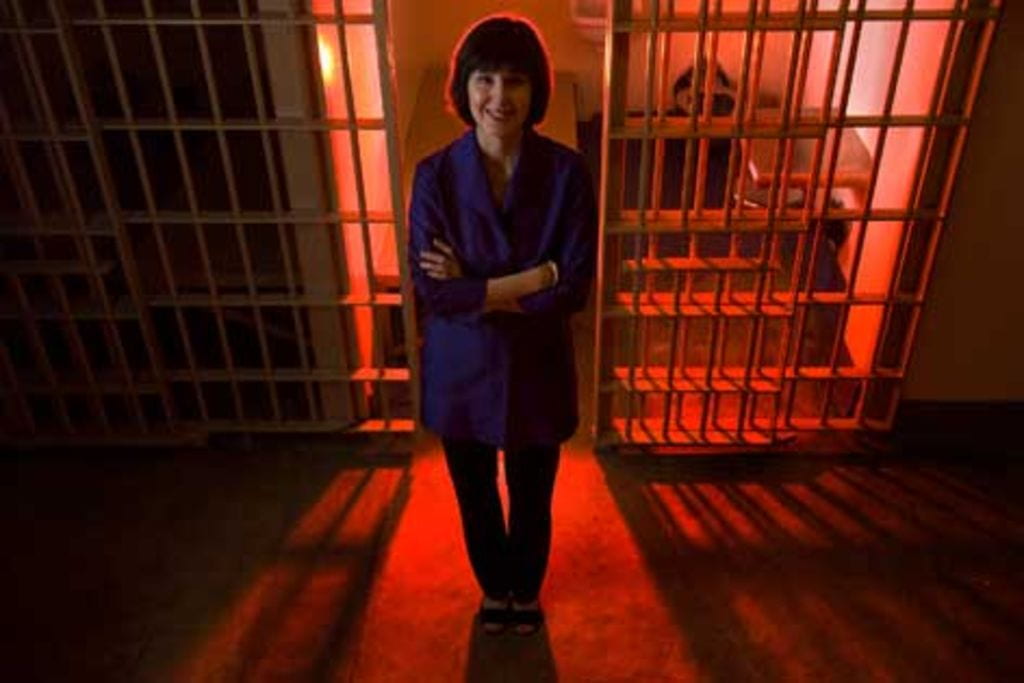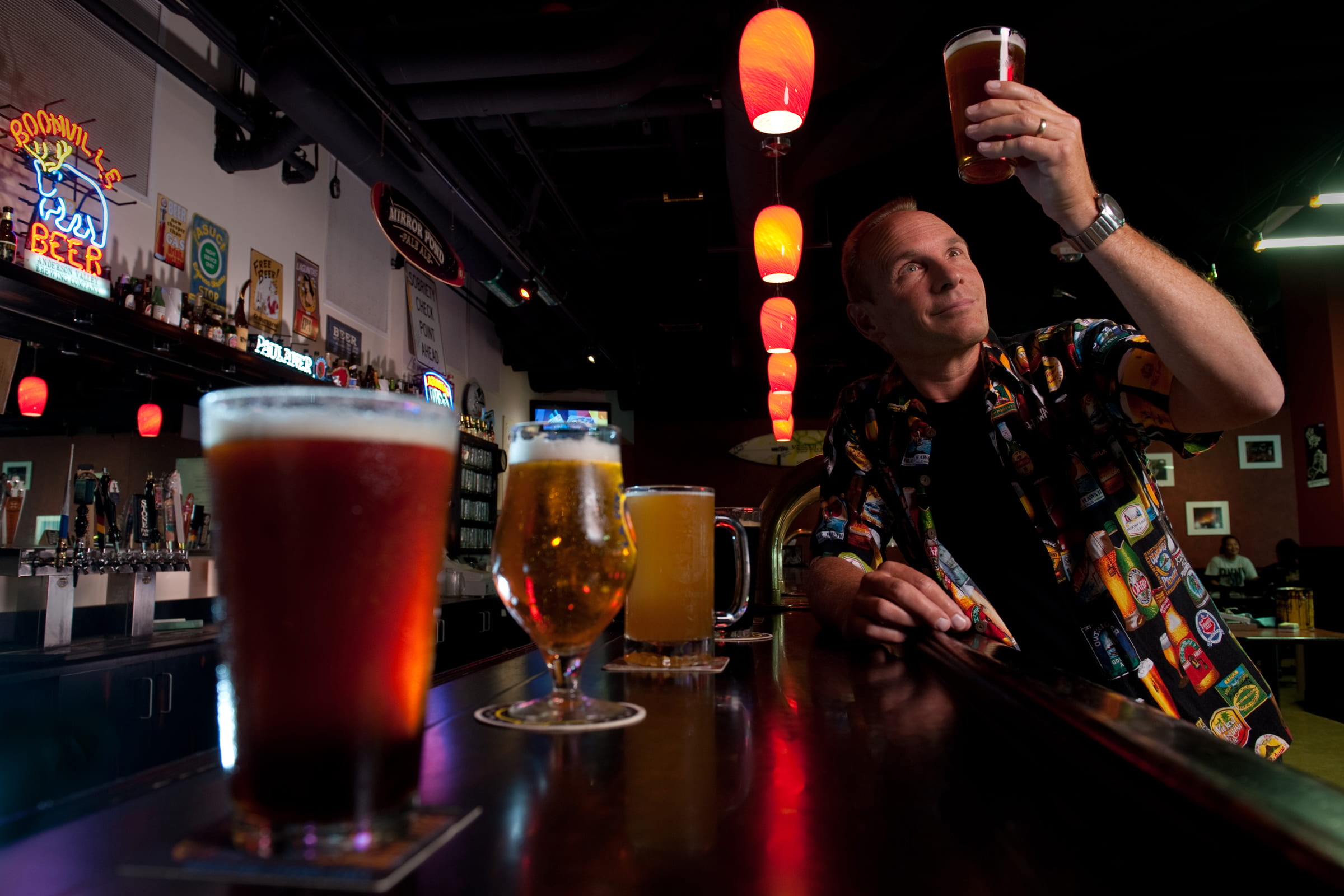Vice and virtue

Amid the riot of books, papers, student exams, posters and paraphernalia in John Dombrink’s office at UC Irvine, one thing stands out: little yellow sticky notes he’s tacked onto a row of file drawers labeled “sin.”
Dombrink — who once considered the priesthood before finding his true calling — specializes in sin. The professor of criminology, law & society and sociology studies immoral, unethical or unlawful behavior and how our definitions of these evolve over time. Gambling, euthanasia, stem cell research, illicit drugs, same-sex marriage — if it gets people riled up over what’s right and wrong, he’s intrigued.
“Anytime there’s ferment, it’s valuable to me,” Dombrink says. “I’m interested in the letter of the law but even more in how mores shift and people’s beliefs change. On issues like stem cells and same-sex marriage, there’s advancement and backlash. Looking at these animates me — and accounts for most of the mess in this office.”
So what’s in the files marked “sin”? Research for his latest book, Sin No More: From Abortion to Stem Cells, Understanding Crime, Law & Morality in America. In it, he and co-author Daniel Hillyard probe such hot-button topics as abortion and assisted suicide to show how American attitudes have moved toward acceptance and decriminalization.
“People shift generationally, over time. Change is the constant,” Dombrink says. “I’m interested in why America is becoming more tolerant or liberal on these issues.
“One of the first areas I began studying — gambling — has become so normalized since the 1970s that it’s no longer divisive. That’s why I keep myself open to a range of things.”
No matter how volatile the subject, Dombrink maintains the impartial air of a scholar.
“I see the gray area of these issues — as do many Americans,” he says. “In matters of law and personal morality, there’s a broad consensus on moderate views.”
Dombrink’s interest in vice stems from his grad school days at UC Berkeley. His law professor, Jerome Skolnick, tapped him to help research gambling in Las Vegas because he already had experience in Sin City — as a seminary student doing social justice work for Franciscan priests.
After receiving a doctorate in sociology in 1981, Dombrink joined UCI, where he’s known for his dedication to teaching as well as outreach. This earned him the 2010 Living Our Values faculty award, bestowed annually by Chancellor Michael Drake for actions best embodying UCI’s values of respect, intellectual curiosity, integrity, commitment, empathy, appreciation and fun.
Since 1999, Dombrink has directed the Criminology Outreach Program, which he started to encourage students in Orange County’s underserved middle and high schools to pursue a college education. “We see 1,000 kids a year in 10 classrooms at six schools,” he says. “They really relate to the committed UCI students being out there, mostly first-generation college students themselves.”
In his Living Our Values nomination letter, Simon Cole, associate professor and chair of criminology, law & society, wrote: “Professor Dombrink has singlehandedly run COP for more than a decade without fanfare or complaint. He has sought to help, rather than give up on, students most in need of encouragement to reach college.”
Each year, Dombrink chooses about 30 UCI students to teach COP classes on subjects such as the death penalty, landmark legal cases, corrections, functions of the police and social inequality.
“I worried at first that these topics might be too raw for middle school students,” he says. “But these kids are already learning about crime and gangs; it’s happening in their neighborhoods.”
The program promotes skills like critical thinking, writing, oral presentation and library research. Students also participate in mock trials that are typically presided over by former Dombrink undergrads — who are now judges and attorneys.
“The students gain a lot from the program,” he says. “We had one 15-year-old who was prosecuting a case before an actual Orange County judge. All of a sudden, this shy high school kid piped up and said, ‘I think you ruled wrong on that, your honor.'”
Dombrink also directs the Social Ecology Mentor-Mentee Program, which helps first-generation college students who have transferred to UCI by matching them with mentors.
“This program’s goal is to increase retention,” he says. “When transfer students come into an unfamiliar setting, they can feel lost. They begin to think they’re not cut out for UCI.”
In addition to teaching and running two outreach programs, Dombrink is working on a sequel to Sin No More called After the Culture War, which covers the backlash against President Obama’s push for change and the emergence of the Tea Party movement.
“Outreach is important in my career at UCI, in balance with research,” Dombrink says. “If I only did one or the other, maybe I’d have a neat office.”
Originally published in ZotZine Vol. 3, Iss. 5


